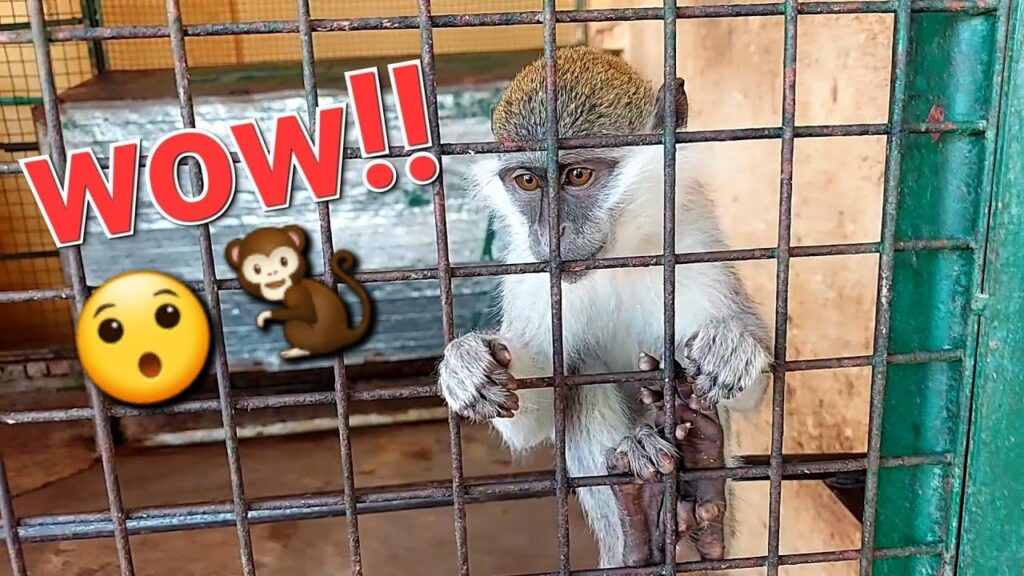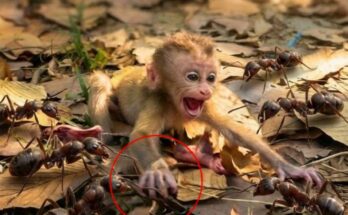
Deep in the dense and vibrant forests, life thrives in countless forms. The rustle of leaves, the songs of birds, the distant calls of predators, and the constant movement of creatures large and small paint a living portrait of survival and coexistence. Every animal has its role, every moment is a fight to eat, avoid danger, and reproduce. But among all the ordinary rhythms of forest life, there are some behaviors so unexpected that they leave even experienced wildlife observers astonished. One such phenomenon is the strange and fascinating habit of certain female monkeys kidnapping animals of other species and treating them as their own young.
In the natural world, we often imagine that animals follow simple instincts – hunting for food, protecting their own offspring, and defending their territories. But the truth is more complex. Female monkeys, driven by strong maternal instincts, sometimes develop an intense desire to care for a baby, even if it isn’t their own. In rare but documented cases, this maternal drive leads them to snatch babies from other monkeys, or even from entirely different species, such as small mammals or birds.
Once the kidnapping happens, something remarkable occurs. Instead of harming the baby, the female monkey carries it gently, keeps it warm, and even shares her food. She grooms the little one, protects it from threats, and treats it as part of her family troop. To human eyes, it can look like an act of compassion or misplaced love – a strange combination of instinct and emotion that crosses species boundaries.
For the kidnapped baby, the experience can be both a blessing and a challenge. On one hand, the monkey’s protection shields it from predators and provides companionship. On the other hand, being cared for by an animal of a different species may cause confusion, dietary mismatches, and separation from its real family. In some cases, the original mother desperately tries to get her baby back, leading to emotional and even violent confrontations within the forest community.
Wildlife researchers have several theories about why this happens. Some believe it is the result of hormonal changes in female monkeys who have recently lost their own infants, causing them to redirect their maternal instincts toward another creature. Others suggest it might be a way of practicing motherhood for younger females who have not yet had their own babies. Regardless of the reason, it is a reminder that the forest is not only a place of hunting and survival, but also of unexpected emotional complexity.
This behavior also shows how nature blurs the lines between compassion and survival instinct. While it might seem strange for a predator or competitor to care for another animal, these moments reveal that life in the wild is not purely about aggression and dominance – it is also filled with surprising acts of tenderness, even if they arise from instinct rather than conscious kindness.
The forest is a stage where countless dramas play out every day, and the sight of a female monkey carrying a baby from another species is one of the most intriguing. It challenges our understanding of animal behavior and leaves us wondering just how much emotion and intelligence truly exist in the wild.


